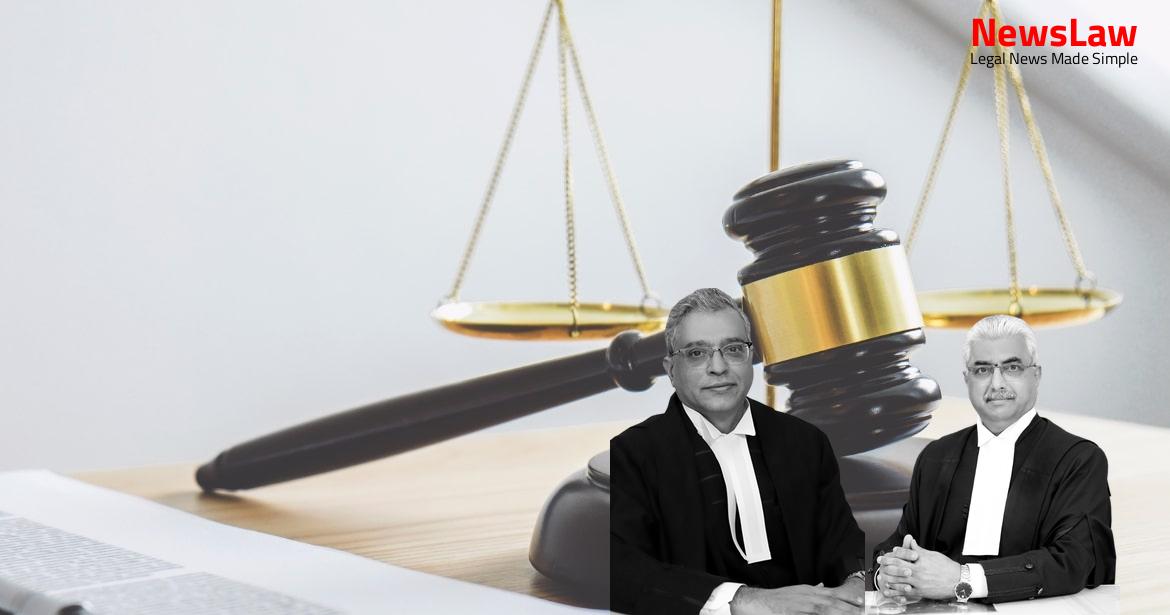Explore the intricate legal analysis surrounding writ petitions for habeas corpus in child custody matters. Discover how the court navigates between ordinary and extraordinary remedies in determining the welfare of the children involved. Unravel the complexities of jurisdiction and legal precedents in such delicate family law cases.
Facts
- Maintenance amount granted in favor of respondent No 6/wife was challenged and reduced by the High Court
- A case under the Protection of Women from Domestic Violence Act, 2005 has been filed by respondent No 6/wife against the petitioner
- The petitioner has filed a writ petition seeking custody of his two minor children aged about 15 years (son) and 10 years (daughter)
- Disputes between the petitioner and respondent No 6/wife led to the wife leaving with the two minor children
- The petitioner filed a case for custody of the children under Section 12 of the Guardians and Wards Act, 1890 which is still pending
Also Read: Clarifying Legal Requirements for Approval in Disciplinary Proceedings
Arguments
- Petitioner contends that the custody petition under the Guardians and Wards Act is pending.
- Petitioner requests the Court to direct the respondent wife to hand over custody of the children.
- Respondent’s counsel argues that the writ petition under Article 32 is not maintainable due to the pending custody case.
- Preliminary objection raised regarding the maintainability of the petition when the custody case is pending before the Trial Court.
- Petitioner argues that children have the right to live with their father based on previous court decisions.
- Petitioner states that respondent wife and children are in a COVID-19 red zone in Kolkata, while petitioner is in a safer green zone in Shantiniketan.
- Petitioner claims that taking the children to Spain, where he resides, would provide better safety and medical facilities.
- Petitioner asserts that children have been illegally taken away by respondent wife.
- The petitioner has not paid the maintenance amount awarded by the Trial Court to the respondent No. 6/wife, indicating lack of concern for her and the children.
- Concerns raised about the petitioner taking the children to Spain if given custody, causing them to be outside the jurisdiction of the Trial Court.
- Safety of the respondent No. 6/wife and children emphasized, mentioning their well-being during the COVID-19 pandemic in Kolkata.
- The question of custody is to be decided after evidence is presented, and a petition under the Guardians and Wards Act is already pending before the Trial Court.
- The case cited (Yashita Sahu) is distinguished as it involved disputes between parents residing in the United States.
- Support from respondent No. 6/wife’s counsel regarding the non-maintainability of the Habeas Corpus Petition, given the mother’s custody as a natural guardian.
- Reference to a similar case where the High Court directed the wife to return to the United States with the minor daughter to continue proceedings in the territorial jurisdictional court there.
Also Read: Challenging the Validity of a Will: Legal Analysis
Analysis
- Writ petition for Habeas Corpus found maintainable in child custody matters.
- Ordinary remedy in child custody lies under the Hindu Minority and Guardianship Act or the Guardians and Wards Act.
- Significant differences between the enquiry under the Guardians and Wards Act and the exercise of powers by a writ court.
- Focus on the welfare of the child in such cases.
- Rights determined based on affidavits in the writ court.
- Exceptional cases allow determination of custody rights on a petition for habeas corpus.
- Habeas corpus proceedings address child custody to the court’s discretion.
- Habeas corpus is an extraordinary remedy issued when ordinary remedy is not available or effective.
- High Court’s power in granting the writ in child custody matters limited to cases of illegal detention of a minor.
- Maintenance of habeas corpus if detention of a minor child by a parent or others is proven illegal and without authority of law.
- Court may decline to exercise extraordinary jurisdiction and direct parties to approach civil court in cases where detailed enquiry is required.
- Habeas corpus proceedings do not aim to justify or examine the legality of the custody.
- The custody of the children with the mother, who is a natural guardian, cannot be considered illegal.
- The petition for habeas corpus directly under Article 32 of the Constitution of India is not maintainable.
- The maintenance amount directed by the Trial Court in the proceedings under the Protection of Women from Domestic Violence Act, 2005 is not being deliberated upon.
- The statutory remedy available under the Guardians and Wards Act is the appropriate remedy and has been previously utilized by the petitioner.
- All questions regarding the welfare and wellbeing of the children can be addressed through the statutory remedy after evidence is presented by the parties.
- No extraordinary or exceptional circumstances exist in this case to warrant the exercise of jurisdiction under Article 32 of the Constitution of India.
Also Read: Significance of Possession in Property Law
Decision
- Requesting the 10 Additional District Judge, Alipore, Kolkata to hear and decide pending case No 88 of 2017 expeditiously and in accordance with the law
- Preferably within six months from filing a certified copy of the order and an application for expeditious disposal of the pending case
- Writ petition dismissed on the grounds of maintainability
Case Title: JOSE ANTONIO ZALBA DIEZ DEL CORRAL ALIAS JOSE ANTONIO ZALBA Vs. THE STATE OF WEST BENGAL (2021 INSC 367)
Case Number: W.P.(Crl.) No.-000318 / 2020



